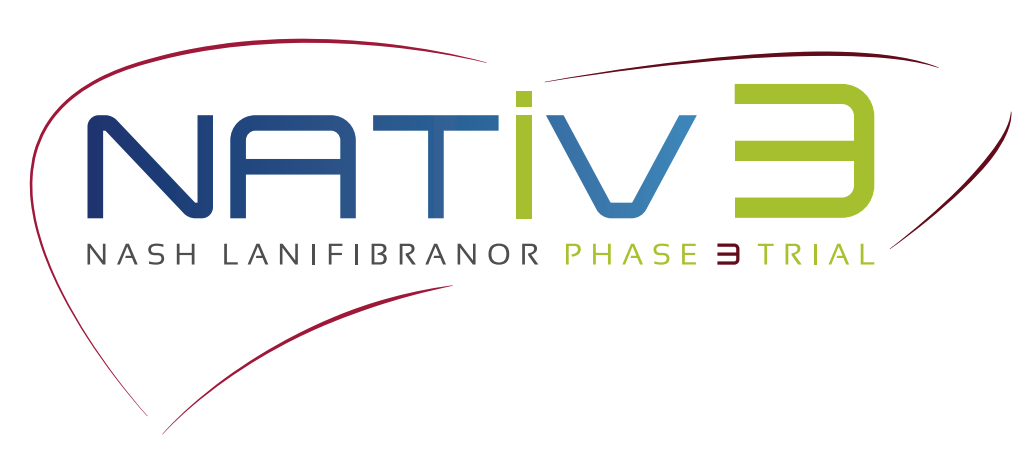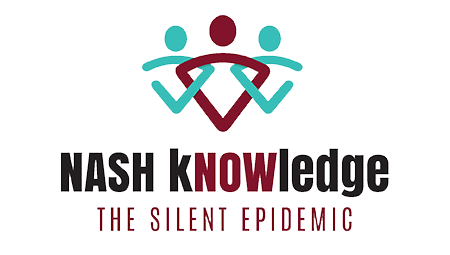FAQ
You have any questions? We can answer.
How much will it cost to participate?
If you are eligible to participate to this clinical trial, you will receive all medicines required for the trial free of charge. In addition, all the visits, medical evaluations and procedures or tests required for the trial will be at no cost for you. All your travel expenses will be reimbursed.
You will also receive medical care and possible physical activity and nutrition recommendations in the context of the clinical trial. Do I need health insurance to participate?
No health insurance is needed to participate to the trial.
Do I get paid for the trial?
Depending on your country and site you may also be compensated for any salary loss and/or time for absence from work due to the attendance of some lengthy study visits corresponding to visits with a biopsy. Your study doctor will provide you with further information on how to request this compensation.
Where can I find a clinical site near my house or place of work?
More than 400 trial sites participate worldwide and around half are in the US. You will find a list of current clinical trial sites here.
Who is sponsoring the trial?
Inventiva, a biopharmaceutical company focusing on studying and developing oral therapies for NASH, is the trial sponsor. This means that Inventiva is responsible for the overall trial design and conduct. Inventiva is a company that focuses on unmet patient needs in metabolic and inflammatory diseases, with a particular emphasis on the liver and gastroenterology.
Who has reviewed and approved the trial?
Research trial protocols must be reviewed by an Institutional Review Board (IRB) or Ethics Committee (EC). The IRB or EC is independent from the clinical trial site. The sponsor also submitted the research trial protocol to the U.S. Food and Drug Administration for review.
Do I need a biopsy?
What is a biopsy?
A liver biopsy is a procedure to remove a small sample of the liver in order to examine it under a microscope and evaluate signs of liver tissue damage and determine the severity of the disease.
This procedure will be performed under local anesthesia (a drug that numbs the skin) to prevent pain.
How often will I have to go to the trial site for the NATiV3 trial?
This trial will have 2 parts:
Part A: 72 weeks to maximum 120 weeks to evaluate the NASH resolution and improvement of the scaring (fibrosis). The participant will be taking either investigational drug or placebo, and will attends the site for a maximum of 10 on-site study visits.
Part B: Evaluate the safety of lanifibranor during 48 weeks. During this part the participant will attend 5 on-site and 1 phone visits so the study doctor can check the health status. No patients will receive placebo and all patients will receive either lanifibranor 800 mg/day or 1200 mg/day.
Visit duration will depend on the planned medical exams.
You will also have several scheduled phone check-ins. Any additional phone calls will be based on the discretion of the investigator.
Why are we conducting NATiV3?
Clinical research trials like NATiV3 may help researchers learn more about much-needed potential treatment options for NASH patients in the future.
There is no guarantee that being in the NATiV3 trial will help your NASH with fibrosis, however you will receive all trial-related procedures and investigational drug at no cost. The participation of patient volunteers makes these trials possible.
Following the results of the previous trial with lanifibranor in patients with NASH, INVENTIVA is conducting NATiV3 to confirm the data in a larger group of participants and show that lanifibranor can induce NASH resolution and fibrosis improvement.
What is NAFLD?
NAFLD stands for non-alcoholic fatty liver disease and is caused by an accumulation of fat in the liver and encompasses all the stages of the disease from a fatty liver to the most severe form of the disease NASH.
What is a clinical trial?
A clinical trial is a research trial conducted with volunteer participants to evaluate if a new drug is safe and effective in treating a disease or improving its symptoms.
Regulatory authorities, like the FDA in the United States, use the results of clinical trials to decide if an investigational drug is safe and effective and could be made available to more patients. Clinical trials are significant way we can develop new or better medical treatments and improve patient care.
Every clinical trial is reviewed by an Independent Review Board/Ethics Committee that helps ensure the trial is conducted safely, and that the rights of participants are protected. Clinical trials are conducted by experienced and trained medical professionals who monitor the health of participants throughout the trial
What is an investigational drug?
Investigational drugs can only be used in clinical research to determine their safety and effectiveness in humans.
Should I take part in a trial?
Learning all you can about clinical research trials can help you decide whether to take part in one. To gather information about the trial you are considering, active participation in the informed consent process, ask questions of the trial doctor and other study staff members, and discuss the trial with your regular doctor (if desired) is recommended.
Consider all of these factors when deciding whether participation in the trial is right for you.
What if I am interested in learning more about the investigational medication?
What if I have questions during the trial?
How does a clinical trial work?
Why do people participate in clinical trials?
People participate in clinical research trials for a variety of reasons. Some volunteers may participate in trials because they want to learn more about their disease and have access to an investigational therapy that may be a potential new treatment option. Other volunteers participate because they want to help researchers learn more about a disease so that it may help them and others in the future.
Are clinical trials safe?
Clinical research trials follow a specific set of standards and are closely regulated to ensure the safety of all participants. Safety precautions are put in place to protect people who participate in clinical research. In addition, trials follow a written plan that is called a protocol. The protocol is designed to make sure all trial procedures are conducted correctly and safely.
The risks of a research trial vary depending on the particular trial. Some investigational medications being studied can have unpleasant or even serious side effects. Before a potential new treatment is tested in a clinical trial with people, it will have already been studied in laboratories in great detail. However, no treatments are entirely without risk, including those treatments already used by doctors. Clinical trials help researchers and doctors decide whether the benefits of a potential new treatment option outweigh its potential side effects.
Before you participate in the trial, all of the known trial risks will be fully explained to you by the trial team during the informed consent process. If additional risks are discovered later during the trial, the study staff will inform you of those risks as well.
Learn more
The links below provide additional information about liver function, NASH, clinical trials, and other organizations that work to promote education, treatment, and research options for liver disease.
Patient Advocacy Groups






